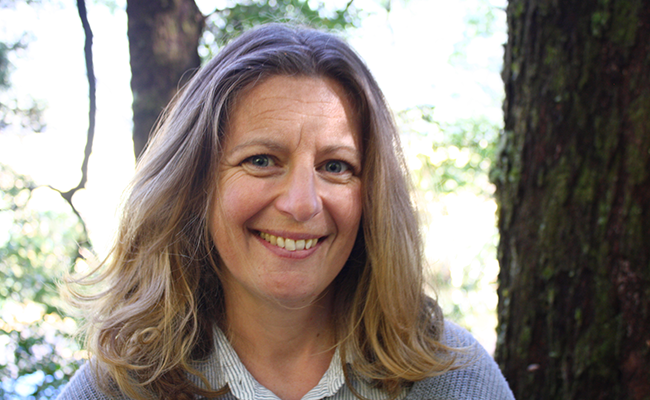
PhD candidate Sonja Bohn says a potential silver lining of COVID-19 could be changes taking place within the tourism industry. Photo credit: Freja Thatcher.
Welcome to the third instalment in our new series 'Introducing postgraduate SGSC', which focuses on postgraduate students within the Sociology, Gender Studies and Criminology Department. In this edition we chat with Sonja Bohn about her research into the relationship between humans and nature in relation to tourism. There are links at the end of this story to the first instalments of the series.
A potential silver lining of the COVID-19 pandemic could be the changes taking place within Aotearoa New Zealand's tourism industry, says an Otago PhD candidate studying the relationship between humans and nature.
During the couple of years leading up to 2020, when COVID-19 first hit the country's shores and ultimately closed the border, tourism was starting to get a lot of negative press, Sonja Bohn, who is completing her PhD through the Sociology Department, says.
There were stories in the news about overcrowding and the large amount of environmental damage occurring because of tourists. It was ironic, she says, given the '100% Pure New Zealand' campaign when in reality parts of the motu were being exploited.
When the industry came to an abrupt stop, it led to a period of reflection for both government and the tourism industry itself.
“There's been a shift in aspirations, for the tourism industry to start addressing some of the problems.”
The need to acknowledge and balance conflicting interests has since led to the idea of 'regenerative tourism' and the idea it could give back to people and place.
This shift is overdue.
Bohn is researching human to nature relationships, and how these play out within the tourism industry in Aotearoa New Zealand.
That people seek to forge a relationship with nature by experiencing its 'untouched' beauty is a romantic western ideal, other cultures see humans and nature as coexisting, she says.
Traditionally tourism has relied on that western value - there being a clear distinction between humans and nature - because through tourism we can visit nature, the industry bridges the gap.
“For nature to be something very distinct from us, otherwise you wouldn't pay a whole lot of money to go to this very wild place.”
The distinction between humans and nature has been beneficial for the tourism industry but has also been harmful, as concepts such as national parks and the tourism industry have contributed to Māori marginalisation and disconnection from their whenua, Bohn says.
Tourism, which is heavily linked with exploration, has existed in Aotearoa New Zealand since it was colonised.
Bohn says even in the 1800s visiting the Piopiotahi Milford Sound was regarded as an intrepid adventure for European visitors.
In the early 20th century tourism was run by the state, and even though the industry was quite small compared to nowadays, nature tourism and appropriated Māori culture became a source of national pride, she says.
During the 1990s the '100% Pure New Zealand' campaign started, and not long after that the Lord of The Rings movies came out.
“It really became quite important for New Zealanders and obviously New Zealand's image overseas.”
The industry has had problematic moments in the past, but Bohn is interested to see what direction it will take now.
Her case study on the Piopiotahi Milford Sound revolves around some major proposed changes to how it is managed, that seek to balance commercial, conservation and mana whenua interests.
It is nice to be researching a topic that people will readily share their views on, she says.
“People love to talk about their travel and reflect on their trips.”
-Kōrero by internal communications adviser, Koren Allpress
